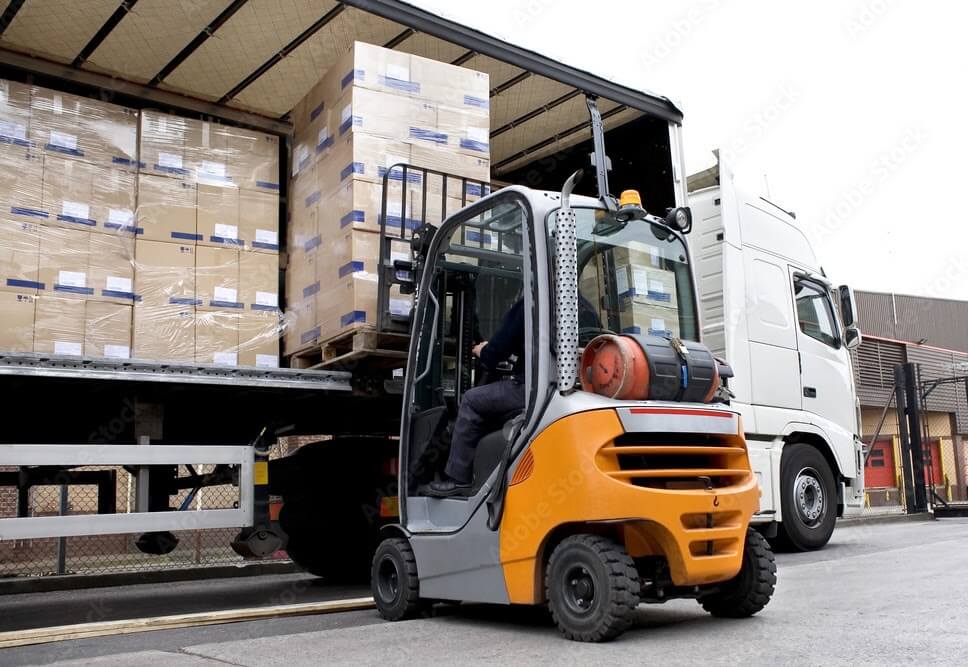How Freight/Transportation Factoring Works
Freight companies face many challenges when trying to free up capital to cover their expenses.
If freight business depends on payments for the delivery of each load, how are they supposed to survive between payments?
Many transportation companies find freight factoring as a viable solution.
Is this the right solution for your company?
What Is Freight Factoring?
Freight factoring is a method of procuring cash flow by selling any unpaid invoices to a factoring company.
Instead of waiting for your customers to pay their bills, which could take anywhere from 30-90 days, you will get immediate payment for your services upfront.
Of course, the factoring company is a business and needs to make a profit. So, you can expect to pay a small fee to the factoring company for their services.
How Does Freight Factoring Work?
Normally, you would deliver your load, bill your client, and wait for payment.
But when you involve a trucking factoring company in your remittance process, the steps change.
Here are the steps for the factoring process:
Step 1
You are hired by a client to deliver a load.
Step 2
You send the load and client information to a transportation factoring company and wait for approval and the ensuing factoring fee.
Step 3
If you agree with the terms of the factoring agreement, you deliver the load to the client as planned and create an invoice.
Step 4
You send the invoice to the client as usual. But instead of collecting payment from the client, the factoring company pays you 60-90% of your freight bill.
Step 5
The freight factoring company then takes over the responsibility to collect the remaining amount of the freight invoice from your client.
Step 6
The factoring company keeps their fee from what they collect and gives you the remainder.
Although it may seem complicated and time-consuming, most factoring companies have online portals and mobile apps that simplify the process.
These tools put all of the information needed at your fingertips and allow you to manage the entire process from your phone or computer.
The Benefits of Freight Factoring
Running a trucking business is relatively simple, but it is by no means easy. Even if you hire only owner-operators to cut back on the cost of owning and maintaining a fleet of trucks, you still have expenses.
Freight factoring ensures that you never have to take out a high-interest loan or use credit cards to pay your truckers.
Freight factoring comes with many benefits for your company:
1. Provides Cash Flow
As with any business, a company in the trucking industry comes with expenses. It costs money just to run your freight company.
According to the American Transportation Research Institute, even though the operational costs of trucking have gone down, it still costs about $1.65 per mile to haul freight.
Just to continue running a trucking business, you need to have access to cash for fuel, insurance, and other costs. While some of your clients may take 30, 60, or 90 days to pay you, freight factoring gives you access to money in hours.
Some freight factoring companies even let you choose how you’re paid. Depending on how fast you need access to cash, you can choose to have it deposited into your bank account via ACH on the next business day or by wire transfer in a matter of hours (sometimes for an added fee).
If you’re really strapped for cash, you may be able to get instant access through a fuel card. These fuel cards often come with access to fuel discounts to save you even more money.
Related: What Your Business Can Do to Speed Up Invoice Payments
2. Can Use It Even With Bad Credit
Many shippers and freight brokers who have come into hard times can’t get a cash advance or a bank loan due to a bad credit score.
Freight factoring is an option no matter what your credit looks like — providers look at your client’s credit to determine eligibility, not yours.
3. Frees Up Time and Energy
The benefits of freight factoring go beyond financials. When you enlist the services of an invoice factoring company, you don’t have to worry about accounts receivable collecting from clients.
The factoring company does that for you.
The hours and effort spent calling clients from your back office about unpaid invoices will be a thing of the past.
Now, you can focus more of your time on what matters — delivering your freight in the best way possible.
4. Take on More Volume
Freight bill factoring puts more cash in your hand, allowing you to take on new clients or expand your business. With this company growth will come increased profits that will help you grow further.
This positive snowball effect is what sets a freight company up for long-term success.
5. Flexibility
Most freight factoring companies allow you to pick and choose which loads to factor. You don’t have to be tied down to a long-term contract.
You can use freight factoring services whenever they are needed. If you don’t have the need, you aren’t obligated to a minimum volume.
Of course, some small business owners in the transportation industry find that the benefits of using this service are too convenient not to use for every bill of lading
6. Help Determine a Client’s Viability
Since the factoring company checks the clients’ credit, using their services can also help you decide who to work with. If a factoring company rejects your overdue invoices from a certain client, you may want to consider why.
You may need to take a deeper look at their finances. At the very least, this gives you access to free credit checks on your current clients and prevents you from going into business with unreliable customers.
See also: An Owner Operators Guide to Truck Invoice Factoring
What to Look for in a Freight Factoring Company
If you are intrigued by this financing option, you need to be aware of what to look for in a freight factoring company. There are many to choose from, and some are better than others.
Of course, you want to check their experience and track record. How many years have they been in business? How easy is their approval process?
Much of their value to you will be outlined in their contract. So, pay close attention to the language used, or even have a lawyer review the contract for you.
If you choose to review each contract yourself, consider these points when assessing the quality of a given program:
Recourse vs. Non-recourse
One of the biggest differences in factoring programs is whether they offer recourse or non-recourse factoring. This idea is not reserved just for the factoring process — it is used in loan processing, as well.
Knowing the definition of both can help you to decide which will be most suitable for your small business.
Recourse Factoring
With this option, you take on more risk. If the client never pays, you are responsible for the bill.
However, with less risk comes a cheaper price tag. If your client has a reputation for paying their bills, this may be the best choice for you.
Non-recourse Factoring
With this type of factoring option, you are never responsible for the bill, even if collecting from your client is unfruitful for the factoring company. After you sell your invoice to the factoring company, you don’t have to worry at all.
This option is more expensive since the factoring company takes on all the risk. It may be the wisest if you are working with a new client that you haven’t yet learned their payment habits.
How Do They Determine Their Fee?
Another thing to consider in choosing a company is how they determine their factoring rates.
Most factoring companies use a formula to decide on their fee. Very rarely will you find a factoring company that offers a flat rate on all invoices.
There are four main points taken into consideration:
Volume
Bigger freight companies factor more invoices and get a smaller fee. Just as it can save you money to buy in bulk, you’ll save money on freight factoring if your contract involves a lot of accounts or high-value accounts.
Clients
The factoring fee is dependent on the creditworthiness of your client. One client poses more of a risk to the factoring company due to the negative assessment of their credit report.
In this case, factoring their invoices will cost more, as there is a higher chance that the factoring company will not be able to collect the total amount due.
It is always better to have multiple clients to factor — this poses less risk on the company’s end. If one client takes longer to pay, they can still recuperate some of the money from another client.
Average Days to Pay
The longer your clients normally take to pay, the higher the fee will be for the factoring service. This makes sense as the factoring company will go longer without payment.
To determine this, the factoring company will ask you for your net terms and past payment receipts from said client.
If this client has a proven record of paying their invoices on time, they’ll have a lower factoring fee than clients who tend to pay late.
Percentage of Invoice Factored
Many factoring companies give you the option of factoring only a percentage of the total amount of the invoice.
For example, a trucking company that factors 90% of their invoices will pay a higher fee than a company that chose to factor only 60% of their invoice.
As a rule, the lower end of the spectrum has a lower fee connected to it, as there is less risk involved.
Terms of the Contract
Lastly, to choose who to use for your factoring, you will want to examine the terms of the contract. Factoring companies have different policies and procedures in place to protect their risk or increase their profits.
It’s never fun to read through additional paperwork, but in this instance, you are protecting yourself from signing a contract that isn’t in your best financial interest.
While reading the contract, check for any additional fees. Look for words like setup fee, credit check fee, or termination fees. These hidden fees can add up quickly if you aren’t careful.
Another important question to answer is if there is a monthly minimum. Some factoring companies will charge you a higher rate if you don’t meet their volume requirements.
Speaking of rates, make sure to ask about the company’s rate. With higher rates often comes better service, so if you find a company that offers low rates, be wary of getting subpar service.
You might also be interested in: How to Recover Lost Revenue Through Freight Audits
The benefits of freight factoring are plain to see. If you find yourself spending as much time on your books as you do getting your truckers on the road, the benefits for you are twofold.
Stop wondering when your clients finally pay you and try freight factoring.
And more specifically, try working with Now.
Unlike traditional factoring, Now offers flexibility, transparency, and flat pricing. We pay you for your invoice upfront, less a one-time service fee.
You can add as many or as few customers to your portfolio as you like. Plus, Now is a non-recourse service, so we absorb the cost if your customer doesn’t pay.
Learn more about the problems Now can solve for you:
B2B Capital Management | Cash Flow Management | Financing Alternatives






